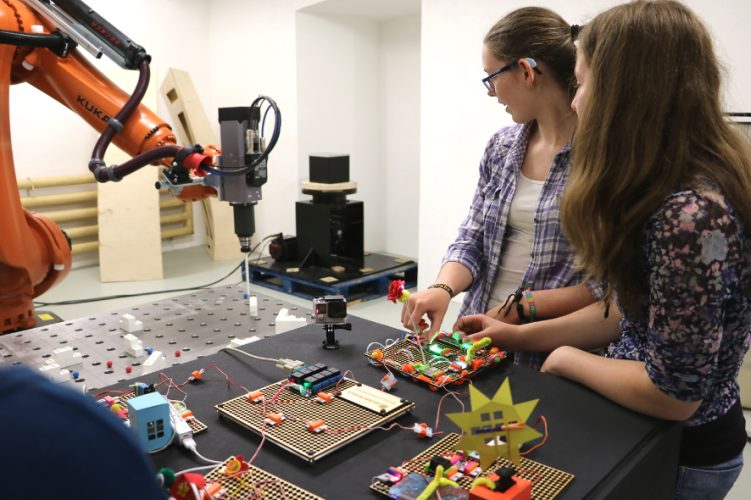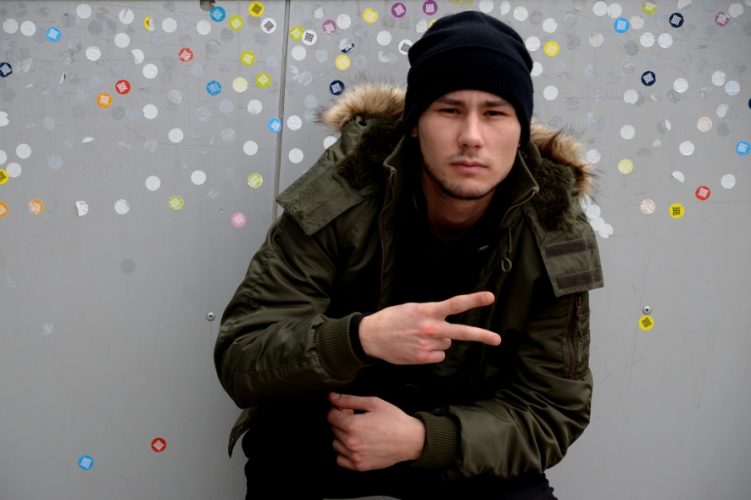
Society
-
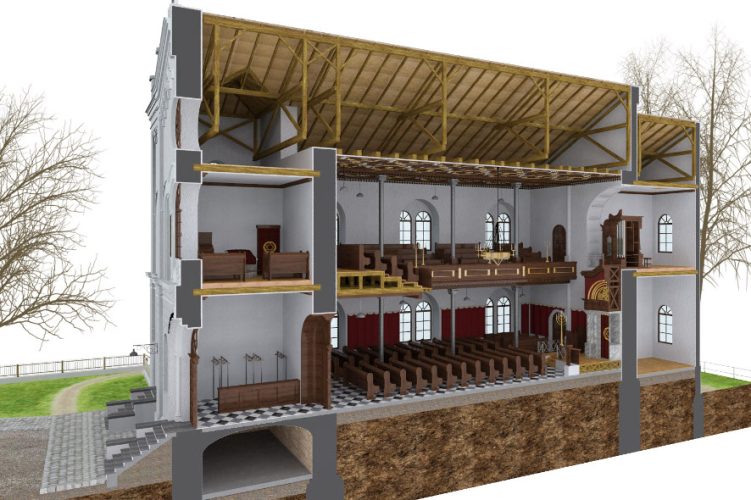
The Virtual Reconstruction of the Linz Synagogue
On Kristallnacht in November 1938, a mob acting on orders of the Nazi regime broke into the Linz Synagogue—like so many other Jewish houses of worship that night—ransacked it and set it ablaze. All that remained of the synagogue was a burnt-out ruin.
-
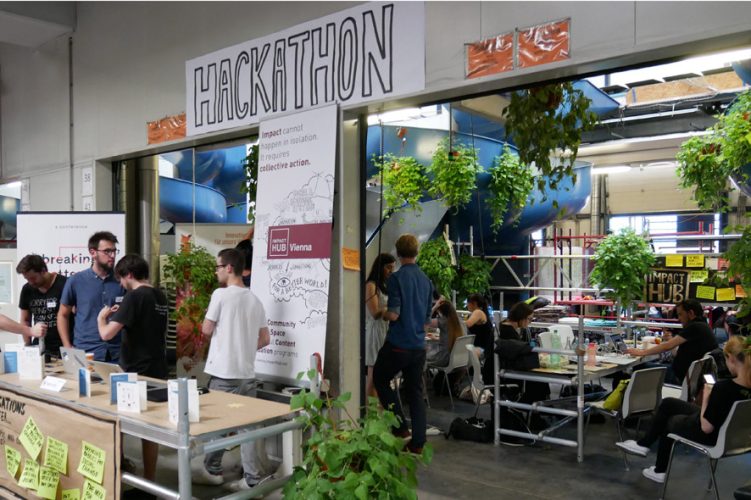
LabOratorium – An Alchemical WorldLab
For “LabOratorium – An Alchemical WorldLab,” the Ars Electronica Solutions came up with an experimental exhibition concept that dovetails nicely with this year’s festival theme. This setup showcased the artists’ works and also gave the participating institutions an opportunity to show what they’re all about. We will show you some impressions of the exhibition at…
-

POSTCITY Linz: From Postal Service Logistics Center to Event Venue to Transit Camp
POSTCITY in Linz debuted as the Ars Electronica Festival venue in 2015, and the former Austrian Postal Service logistics facility is reprising its role as a setting for media art events this year. Between these two deployments, POSTCITY served as a transit camp for refugees. Paul Reinthaler, regional director of the Red Cross, gives an…
-
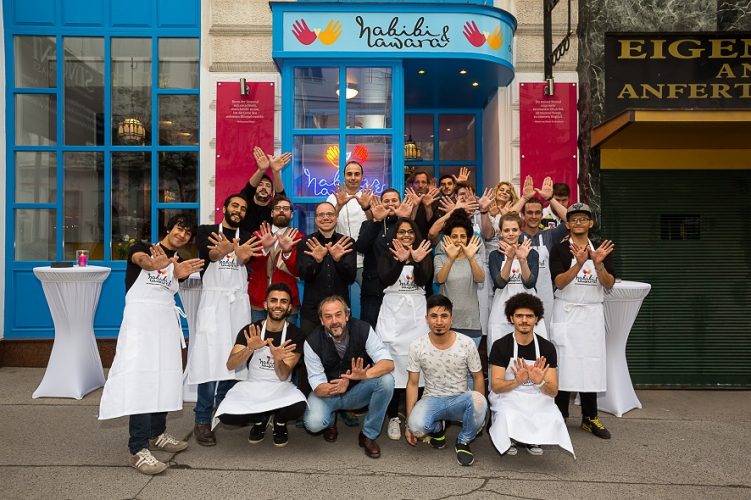
Working Together on Behalf of Refugees: The 2nd Helpers Conference in Linz
This is a conference organized by ZusammenHelfen in Oberösterreich (Helping Together in Upper Austria) to provide support to, show appreciation for and foster networking among the many volunteers working to aid refugees. Volunteer helpers will be gathering on September 10, 2016 at the Ars Electronica Festival. Nicole Sonnleitner of ZusammenHelfen in Oberösterreich told us more.
-

Politics meets Social Media: Participation in the Age of New Media
The emergence of Facebook, Twitter & Co. in recent years has opened up new options for the exchange of political views. How these digital platforms are changing the political discourse, what new forms of sociopolitical participation are resulting from them, and which challenges they confront us with will be discussed at “Participation & Political Socialization…
-
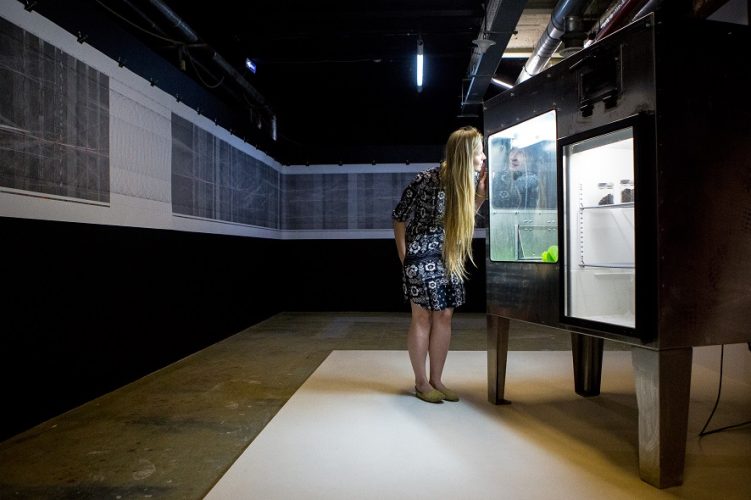
FLY FACTORY – Are Insects the Food of the Future?
Well, in any case, Búi Bjarmar Aðalsteinsson thinks it’s possible. His project is a breeding ground for flies whose larvae can be harvested and processed into foodstuffs. “Fly Factory” is now on display in the “EARTH LAB – Artists as Catalysts” exhibition in Moscow.
-
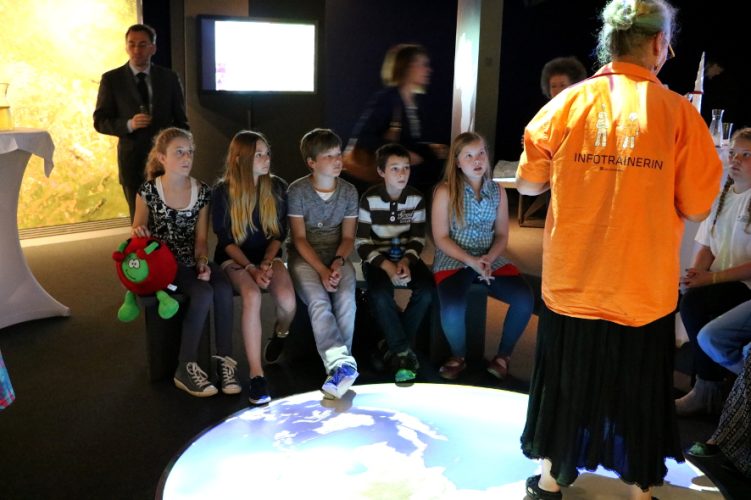
ESERO – Space Research in Classroom Instruction
Since today the Ars Electronica Center Linz is officially the Austrian “European Space Education Resource Office”, short ESERO. We have spoken with Clara Cruz Niggebrugge, ESERO Project Coordinator of the ESA Education Office.
-
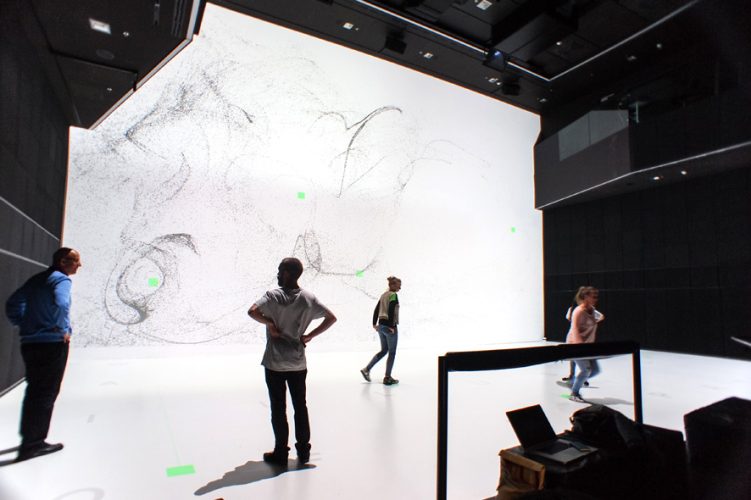
Intro to Deep Space: The Course
Linz Art University’s Time-based and Interactive Media bachelor’s program offers students the opportunity to create interactive works especially for Deep Space 8K at the Ars Electronica Center. Read more about it in this interview with the program director, Prof. Gerhard Funk.
-
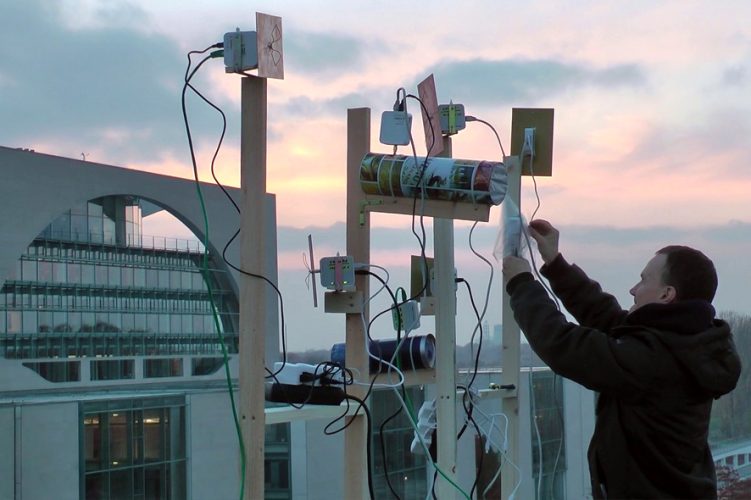
Hello spies, can you hear me?
“Can you hear me?” was a temporary network that artists Christoph Wachter and Mathias Jud set up above the rooftops of the German government district in Berlin to downright force intelligence agencies to listen in on what they and thousands of other people were saying. Besides getting the agents’ attention, the artists are also the…
-
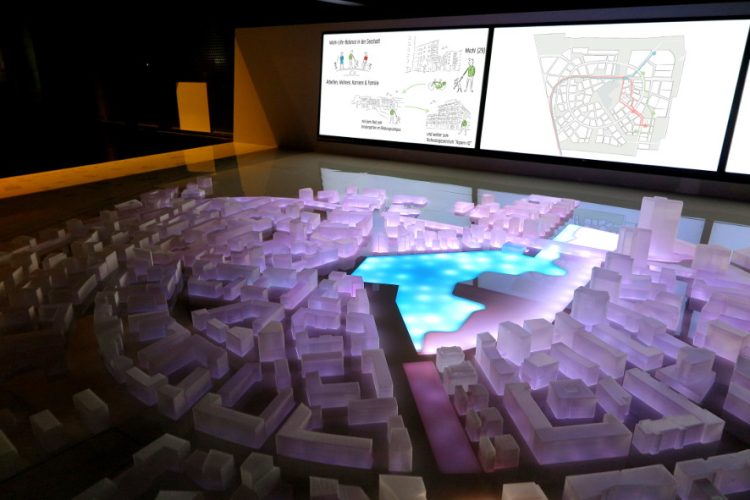
Aspern, Vienna’s Urban Lakeside with Model Character
The Ars Electronica Futurelab is serving as scientific associate in conjunction with an innovative five-year series of special exhibitions at the TMW. Three exhibitions are planned for this „Weiter_Gedacht_“ series that premieres on June 8th and will run from 2016 to 2021.
-

Fear of the “Onslaught”
Reading postings on the “refugee crisis” by friends on “social” media sites like Facebook reveals the propagation of base prejudices as well as numbing euphemisms, empathy and posturing alike. Simon Hadler, a journalist with the ORF–Austrian Broadcasting Company, talked to us about the public debates on refugees and asylum-seekers. He’ll go into this topic in…
-
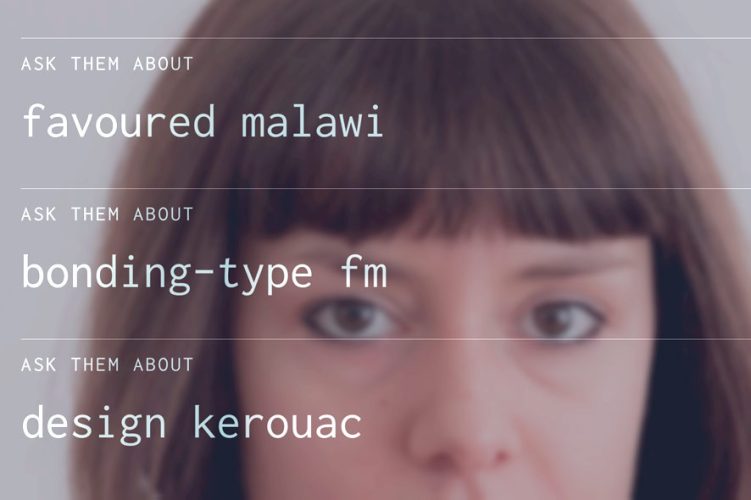
False Positive: How exact is digital profiling?
The idea of tycoons and governmental institutions being able to know more about us than ourselves by tracing our internet behavior, is a rather frightening one. But in reality, they know less than we think – that point has been proven by Mark Shepard, Julian Oliver and Moritz Stefaner with their project “False Positive” which…
-
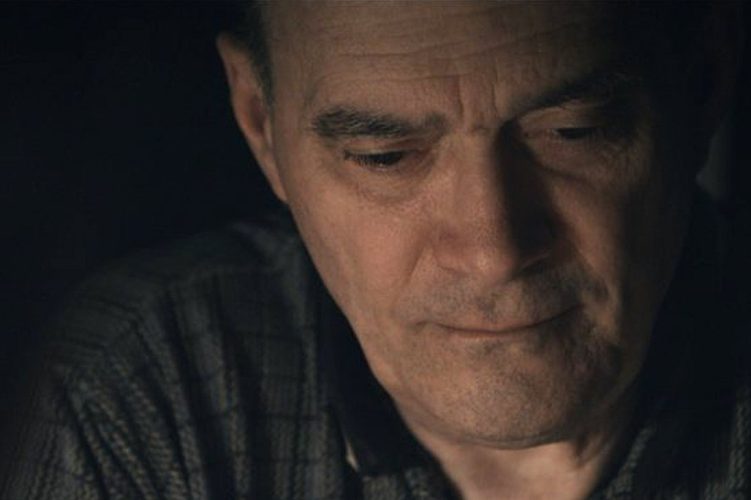
William Binney: “I would disconnect everything”
Does safeguarding our security really necessitate totally sacrificing our right to privacy and allowing government watchdogs to have access to all of our information? William Binney, former tech director at the US’s National Security Agency (NSA), sketches a possible alternative and issues a warning about the use of social media and clouds.
-
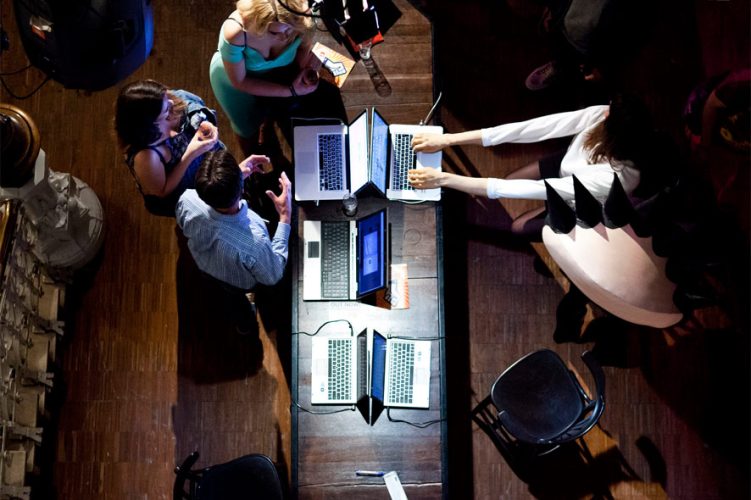
Networking, do it the right way
By the time we set up our own Facebook account—by then, at the very latest—many of us are very much aware of the advantages and disadvantages inherent in our digital coexistence. Marleen Stikker founded her first Digital City all the way back in 1994. Now she’s one of the five Prix Ars Electronica jurors who…
-
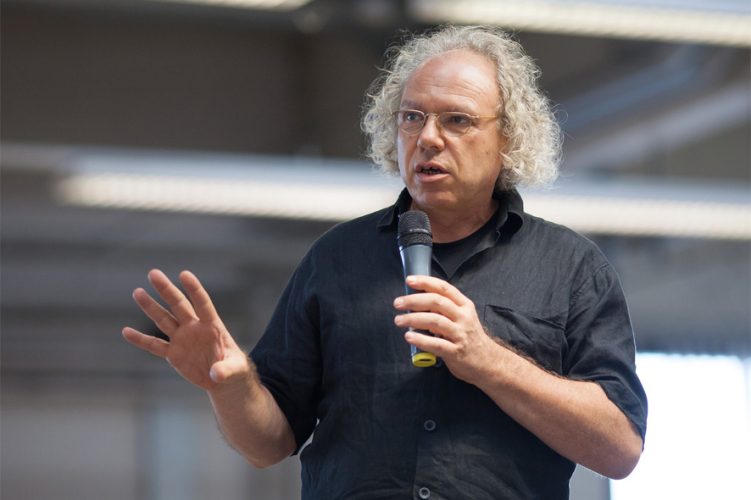
“Nurture contrarians rather than mainstream thinking”
March 13, 2016 is the deadline for entries to Ars Electronica’s search conducted under the auspices of the European Commission for innovative projects at the nexus of science, technology and art. Alexander Mankowsky, a futurist on the staff of Daimler AG and a STARTS juror, recently talked to us about the trailblazing role of art…
